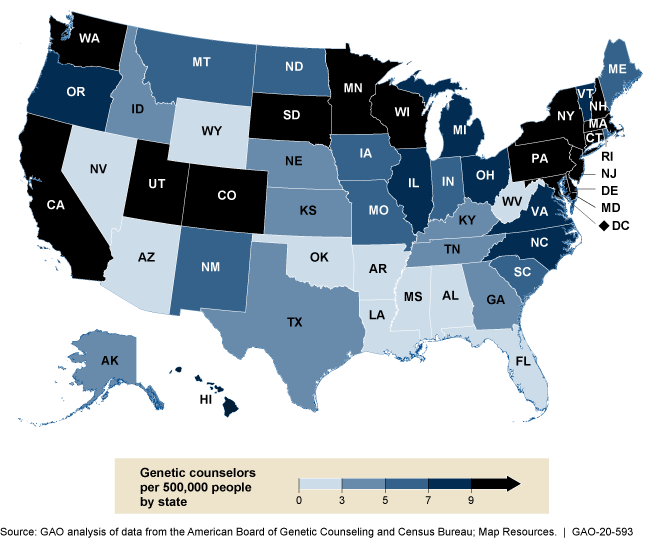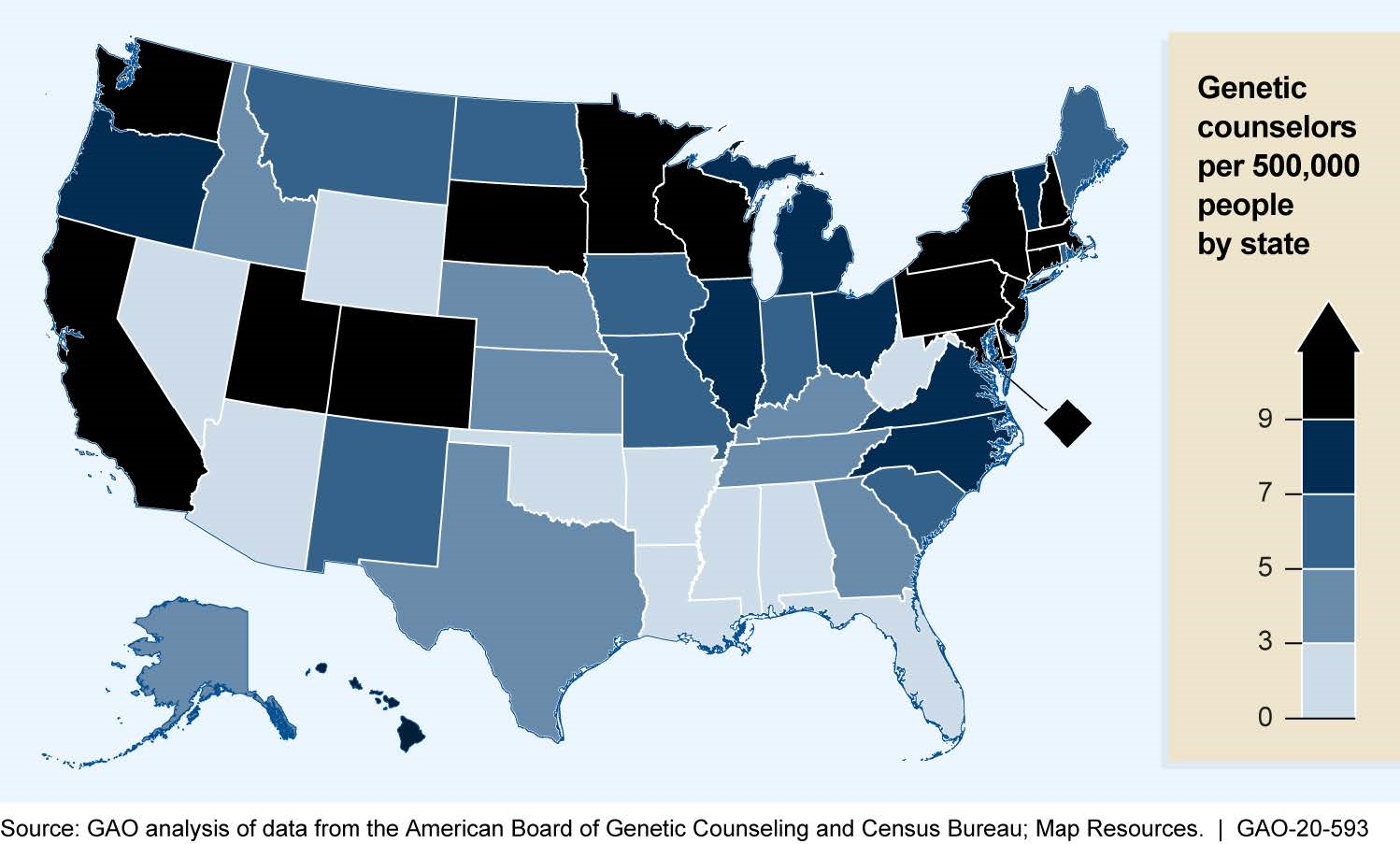Genetic Services: Information on Genetic Counselor and Medical Geneticist Workforces
Fast Facts
Genetic test results can help diagnose or confirm a condition. Genetic counseling can help explain the results and available treatment options. Some studies have raised concerns on whether there are enough genetic counselors and medical geneticists—genetic test providers—to meet the current and future demand for genetic services.
About 4,700 genetic counselors and 1,240 medical geneticists are certified to provide care in the United States, and both numbers have increased in recent years.
The number of genetic counselors and medical geneticists varies across the United States, with higher proportions in northeastern states.
Distribution of Genetic Counselors per 500,000 People by State, 2019

Highlights
What GAO Found
Genetic counselors and medical geneticists are two groups who typically work together to provide genetic services, such as genetic testing and counseling. Genetic counselors have at least a master's degree in genetic counseling and assess individuals or families with or at risk for genetic conditions, and provide counseling and education on test results. Medical geneticists are typically physicians who specialize in medical genetics and genomics, and provide comprehensive genetic services, ranging from diagnosis and interpretation of test results to the management and treatment of genetic conditions.
GAO's analysis of data from the professional organizations representing this workforce shows the number of genetic counselors certified to provide genetic counseling services has nearly doubled since 2009, and is projected to continue growing. The data show there were approximately 4,700 certified genetics counselors in the United States in 2019. The data also show the number of new medical geneticists has increased modestly since 2009, and the total number certified in the United States was approximately 1,240 as of April 2020. There is no widely accepted measure for how many genetic counselors and medical geneticists should be available; however, representatives from professional organizations GAO interviewed stated that demand for genetic services is rising.
Data from the professional organizations representing the genetic counselor and medical geneticist workforces, as well as data from the Census Bureau, also show the number of genetic counselors and medical geneticists varied across states. States averaged seven genetic counselors per 500,000 people in 2019 and two medical geneticists per 500,000 people in 2020. Genetic counselors and medical geneticists primarily practice in hospital settings.
Distribution of Genetic Counselors by State, 2019

Why GAO Did This Study
Advances in genetic technology and research have increased the amount of information available to individuals and providers, and may have increased the demand for genetic services. The medical genetics workforce—which includes genetic counselors and medical geneticists—plays an essential role in providing access to genetic services. Some studies have identified concerns with the size of the medical genetics workforce and its ability to meet the current and future demand for genetic services.
A House Committee on Appropriations report included a provision for GAO to conduct an analysis of the medical genetics workforce. This report describes, among other objectives, what is known about changes in the size of the genetic counselor and medical geneticist workforces; and what is known about the geographic distribution of these workforces.
GAO reviewed relevant studies of the genetic counselor and medical geneticist workforces; interviewed agency officials and professional organizations representing each workforce; and analyzed the most recent available data on the size and distribution of each workforce in the United States, as well as population data from the Census Bureau.
GAO provided a draft of this report to the Department of Health and Human Services and the Department of Labor. The Department of Health and Human Services provided technical comments, which GAO incorporated as appropriate.
For more information, contact James Cosgrove at (202) 512-7114 or CosgroveJ@gao.gov.
